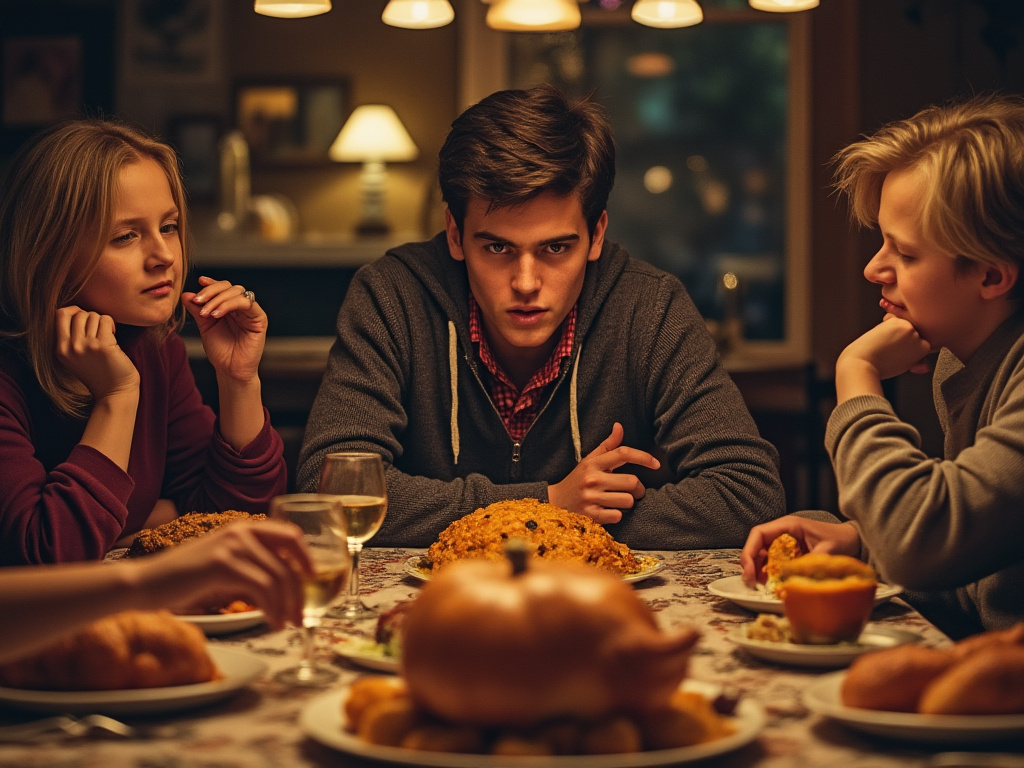Thanksgiving has a knack for bringing up old arguments alongside the pumpkin pie. But this year, as political divisions run deeper than gravy on your mashed potatoes, the temptation to skip out on family gatherings because of clashing beliefs—especially if Uncle Larry is still sporting that red MAGA hat—is real.
Here’s the thing: it doesn’t have to be this way. In fact, leaning into these moments of connection, awkwardness and all, might be the most radical act you can perform this Thanksgiving.
You’re not going to change their mind—but that’s okay.
Let’s get this out of the way: you’re not going to use the cranberry sauce as a segue to convince your aunt that climate change is real or to dismantle your cousin’s belief that the 2020 election was rigged. Just as they probably won’t get you to buy into the idea that gas stoves are under attack by Big Government.
But spending time together without the goal of “winning” the conversation is liberating. It can remind you that relationships exist outside the arena of political debate. Who knew that your uncle, who once live-tweeted Stop the Steal, can still make a killer deep-fried turkey?
They’re still your family, and you’ll miss them someday.
It might feel good to dodge the tension this year, but how many more Thanksgivings do you get with your parents, siblings, or even that wild-card cousin who thinks Tucker Carlson is the voice of reason?
The truth is, family bonds are complicated. People are flawed. And while it’s tempting to ghost a dinner filled with awkward conversations, showing up can remind you of the moments that matter most—like when your grandma makes you laugh until you cry or your sibling teases you about something from your childhood.
Thanksgiving is about gratitude, not grudges.
At its core, Thanksgiving is about pausing to appreciate what you have. That doesn’t mean ignoring harmful beliefs or pretending problems don’t exist, but it does mean choosing to focus on what connects you rather than what divides you.
Take it as a challenge: Can you sit across from someone with completely opposing views and still enjoy the meal? Can you choose peace, even if their political commentary makes your blood pressure spike? Gratitude doesn’t erase differences, but it helps put them in perspective.
Humor can heal—so bring your best jokes.
Sometimes, the best way to diffuse tension is with a good laugh. If your Trump-loving uncle starts ranting about Hunter Biden, you don’t have to take the bait. Instead, hit him with a lighthearted, “I didn’t know we were holding the Thanksgiving debate team tryouts tonight!”
Humor doesn’t solve everything, but it can be a lifeline in conversations that are headed off the rails. Plus, it keeps the vibe light enough for everyone to focus on the main event: the pie.
Walking away doesn’t solve anything.
Skipping Thanksgiving might feel like a power move, but it often leaves both sides feeling more entrenched in their positions. The lack of connection fuels the narrative that “the other side” doesn’t care, doesn’t listen, or doesn’t respect differing views.
Showing up—even if it’s hard—sends a different message. It says, “I don’t agree with you, but I still value you.” It’s an act of defiance against the forces that want to split us further apart.
This Thanksgiving, Take the Higher Road
Nobody is saying it’ll be easy. Yes, you might hear some conspiracy theories that make you want to pull your hair out. And yes, you might have to dodge a few awkward questions about why you’re not married or whether you’ll ever move out of the city.
But sharing a meal with family isn’t about solving every disagreement. It’s about remembering that we’re human beings first—messy, complicated, and wildly imperfect.
So this Thanksgiving, give it a try. Sit down at the table. Pass the mashed potatoes. Laugh, listen, and—when the conversation veers toward politics—take a deep breath. The turkey might be dry, but your relationships don’t have to be.

